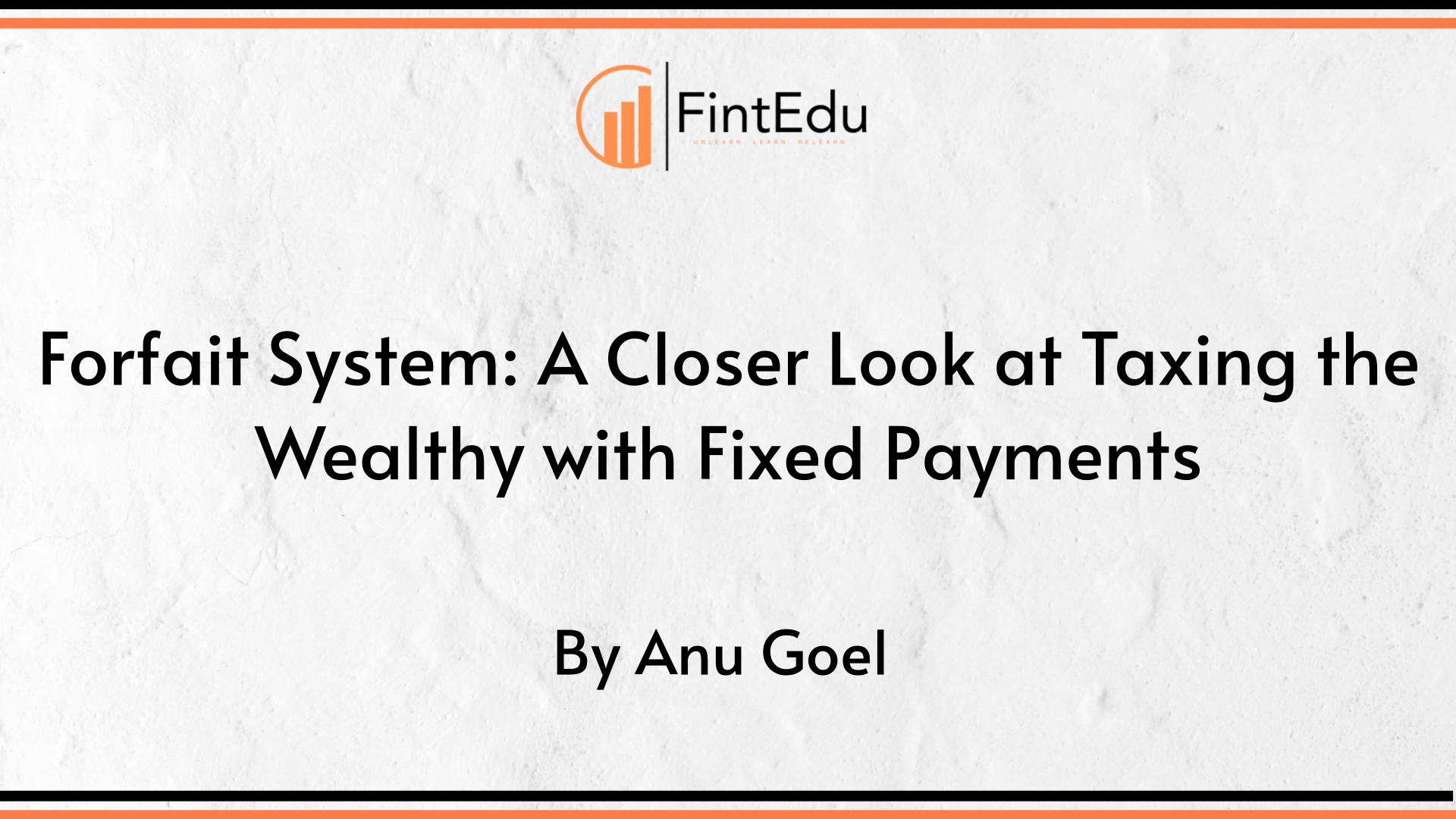LISTEN TO THIS ARTICLE
Lump-sum taxation, also known as the forfait system, is a tax model where individuals or entities pay a pre-determined, fixed amount of tax, irrespective of their actual income or wealth. This tax is often negotiated between the taxpayer and the government, based on the taxpayer's lifestyle, rather than their earnings. It is a system primarily designed to attract wealthy foreigners and expatriates who earn most of their income outside the country where they live.
Unlike traditional tax systems that are progressive and based on earnings or assets, lump-sum taxation simplifies the process. It offers certainty on the annual tax amount, often appealing to high-net-worth individuals (HNWIs) who wish to avoid complicated tax regulations on global income.
Why Do Countries Use Lump-Sum Taxation?
Countries offering lump-sum taxation have several motivations, including:
- Attracting Wealthy Foreigners : High-net-worth individuals bring substantial capital, purchasing luxury real estate, supporting local businesses, and contributing to high-end industries. By offering them a fixed tax, countries incentivize these wealthy individuals to settle locally without taxing their global wealth.
- Simplifying the Taxation Process : Governments can streamline tax collection by removing the need to audit global income or assets. The lump sum provides predictable revenue without complex tax administration.
- Retaining Wealthy Residents : Some countries, especially those with high tax rates, risk losing their wealthy citizens to more tax-friendly locations. Lump-sum taxation provides a mechanism for these countries to keep these individuals by offering a favorable tax arrangement.
- Competing for Global Wealth : In a world where affluent individuals can choose their tax residency, countries use lump-sum taxation as a competitive edge to attract international wealth, maintaining relevance in the global economy.
How Lump-Sum Taxation Works
Lump-sum taxation typically applies to foreign nationals who earn most of their income outside the country where they reside. Key aspects of how it works include:
Pre-set Annual Tax : The taxpayer agrees with the government on a fixed amount of tax based on their lifestyle or living expenses rather than their total income or wealth.
No Tax on Global Income : In most cases, lump-sum taxpayers are not taxed on their worldwide income. This is especially attractive to HNWIs with complex income sources from multiple countries.
Residency Requirements : Countries offering lump-sum taxation often have specific residency requirements, such as spending a minimum number of days within the country, to qualify for the program.
Real-World Examples of Lump-Sum Taxation Systems
Switzerland : Switzerland is one of the most famous examples of lump-sum taxation. Wealthy foreigners who reside in Switzerland but do not work there can pay a fixed annual tax based on their living expenses. For instance, in Geneva, the minimum tax is calculated on at least seven times the annual rent or imputed rental value of the taxpayer’s home .
Italy : In 2017, Italy introduced a lump-sum tax regime aimed at attracting wealthy foreigners. Individuals can pay a fixed €100,000 tax per year on their foreign income, regardless of how much they earn abroad. This system targets retirees, business leaders, and celebrities looking for a tax-friendly environment .
Portugal : Portugal offers its "Non-Habitual Resident" (NHR) regime, under which new residents can benefit from significant tax exemptions on foreign income for ten years. While not a pure lump-sum system, this regime has attracted many retirees and expatriates who earn income outside Portugal .
Greece : Greece launched a lump-sum tax system in 2020 to attract affluent foreigners. By paying an annual tax of €100,000, individuals can enjoy tax residency without declaring their global income, similarly structured to Italy's model .
Malta : Malta’s Global Residence Program also offers a lump-sum tax model. Foreigners who obtain residency in Malta can benefit from a flat tax of 15% on income remitted to Malta, with a minimum tax payment requirement .
The Logic Behind Lump-Sum Taxation
Lump-sum taxation works on a straightforward principle: countries attract wealthy individuals by offering certainty in their tax obligations. For governments, the fixed tax provides reliable revenue without complex administration. For the wealthy, it ensures that they aren’t taxed twice on their global income or burdened by unpredictable tax rates.
This system is especially beneficial in:
Supporting Local Economies: Affluent individuals contribute indirectly to the economy by purchasing property, investing in businesses, and driving demand for luxury goods and services.
Offering Tax Flexibility: In an increasingly mobile world, wealthy individuals can choose their tax residency based on favorable systems. Lump-sum taxation gives them an alternative to paying high rates in traditional tax jurisdictions.
Lump-Sum Taxation vs. Non-Dom Tax Regimes
The concept of non-domiciled tax regimes shares similarities with lump-sum taxation, especially in how they handle foreign income.
The key difference is that lump-sum taxation requires a fixed, pre-agreed payment regardless of actual income, while non-dom regimes usually tax only remitted income (income brought into the country). Both approaches aim to attract foreign wealth, but lump-sum taxation offers more predictability for the taxpayer.
Lump-Sum Taxation – A Growing Trend?
As global mobility increases, lump-sum taxation remains a favored tool for countries looking to attract high-net-worth individuals. However, the debate over the fairness of such systems continues, particularly as countries grapple with broader discussions of income inequality and tax justice.



